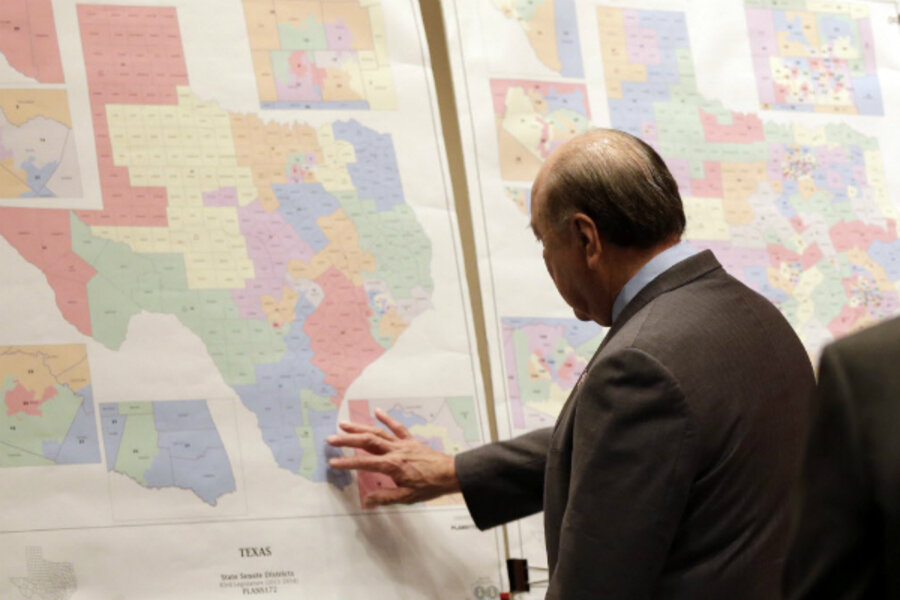Supreme Court, in Voting Rights Act follow-up, wipes out key Texas rulings
Loading...
| WASHINGTON
Two days after invalidating a key section of the 1965 Voting Rights Act, the US Supreme Court wiped out two important rulings under that now-vanquished section that had blocked a new voter ID law and required more generous minority election districts in Texas.
The high court took the action Thursday in two brief orders in the pending cases of Texas v. US (12-496), challenging state-wide redistricting plans, and Texas v. Holder (12-1028), challenging a new law requiring voters to show photo ID before casting a ballot. Latinos had challenged the redistricting plans as attempts to weaken their political influence, and Attorney General Eric Holder had criticized the voter ID laws as a "poll tax."
Both measures, backed by Republican lawmakers, had been blocked by judicial panels in Washington acting pursuant to their authority under Section 5 of the Voting Rights Act (VRA). Until Tuesday, that section of the law had required certain states and jurisdictions that had histories of discrimination – including Texas – to submit proposed changes in election rules and procedures to Washington for pre-approval.
On Tuesday, in a 5-to-4 vote, the high court invalidated a closely related portion of the VRA in a ruling that effectively ended all coverage under Section 5.
That set the stage for Thursday’s orders. After vacating the earlier decisions, the Supreme Court remanded both cases to the lower courts for further consideration in light of the VRA ruling.
What happens next is unclear.
Shortly after the decision on Tuesday, Texas Attorney General Greg Abbott announced that the state’s new voter ID law would immediately take effect. He also said that the state’s challenged redistricting maps “may” also take effect without prior approval from Washington.
Last week, Texas lawmakers approved voting districts used in the 2012 election that had been authorized by the three-judge panel. So any action by state officials to resurrect the old 2011 districts (struck down by the court in August) would be a controversial move.
In its order Thursday, the Supreme Court noted that at least one of the parties to that case had suggested that the redistricting case was now moot.
The court’s action does not insulate Texas and the earlier challenged provisions from judicial review. Anyone seeking to invalidate the voter ID law plan or a redistricting plan will be required to rely on Section 2 of the Voting Rights Act.
That section allows individuals, organizations, and the government to file suit to fight discrimination or discriminatory voting changes. It also provides for federal injunctions to block discriminatory provisions prior to an election.
How these provisions play out in Texas in the weeks and months ahead may provide the first test of what the future looks like under the new stripped-down version of the Voting Rights Act.







